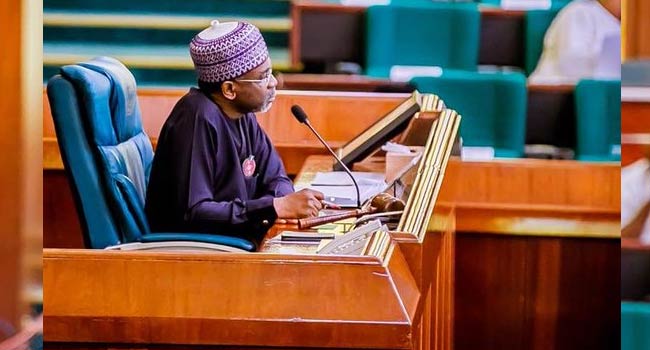The House of Representatives on Wednesday surpringly barred journalists from covering the public hearing on the controversial Control of Infectious Disease Bill currently before the House of Representatives.
When journalists, particularly members of the House of Representatives Press Corps, turned up to cover the event, they were turned back by operatives of the Sergeant-at-Arms, acting on the instructions of the Chairman of the Health Services Committee, Tanko Sununu, and the Committee’s Clerk, Joyce Umeru, further fuelling speculations that the House was bent on ramrodding the bill through despite high-level misgivings by the public.
Reporters were told by the operatives, who hid their identity, that only the Nigerian Television and Channels Television were invited to cover the public hearing.
The Bill which is sponsored by the Speaker of the House of Representatives, Femi Gbajabiamilla; Pascal Obi, Chairman, House Committee on Health Institutions; and Tanko Sununu, Chairman of the Committee on Health Services,
seeks to repeal the Quarantine Act and enact the Control of Infectious Diseases Bill.
It seeks to make provisions relating to quarantine and make regulations for preventing the introduction into and spread in Nigeria of dangerous infectious diseases, and for other related matters.
Part of general concern by the public that the bill is giving too much powers to the Nigerian Centre for Disease Control in the management of infectious diseases and pandemic in the country in ways that could infringe on the fundamental human rights of Nigerians.
Chairman of Nigerian Governors Forum Kayode Fayemi said Wednesday that the bill impinges on the rights of states as subnational entities to control developments in the health sector.
He expressed the misgivings of the governors over the extraordinary powers given to the Director General of Nigeria Centre for Disease Control under the Bill.
The Bill amongst others empowered the Director-General of the NCDC to be in charge of the administration of the new Act, notification of prescribed infectious diseases, surveillance, medical examination and treatment, vaccination post-mortem examination, destruction and disposal of infected animals, food and water, isolation of certain persons,
prohibition or restriction of meetings, gatherings and public entertainments as well as control of occupation, trade or business.
Some provisions of the Bill stipulate: “Except as otherwise provided by this Act, the Director-General of Nigerian Centre for Disease Control shall, subject to any general or special directions of the Minister, be responsible for the administration of this Act.
“The Director General may, subject to such conditions or restrictions as he thinks fit, appoint any public officer, officer of any statutory body; or employee of a prescribed institution, to be a Health Officer for the purposes of this Act or any particular provision of this Act.
“The Director General may require any person who is, or is suspected to be, a case or carrier or contact of an infectious disease to submit to medical examination or medical treatment within or at such time, and at such place, as the Director General may determine.
“The Director General may order any person who is, or is suspected to be, a case or carrier or contact of an infectious disease to be detained and isolated in a hospital or other place for such period of time and subject to such conditions as the Director General may determine.”
Another provision of the Bill that particularly generated serious condemnation is the power to order certain persons to undergo vaccination or other prophylaxis.
It states: “In an outbreak or a suspected outbreak of any infectious disease in any area in Nigeria, the Director General may by order direct any person or class of persons not protected or vaccinated against the disease to undergo vaccination or other prophylaxis within such period as may be specified in the order.”
It was in the face of these heavy criticisms that Gbajabiamila said the House will subject the Bill to a public hearing where Nigerians from all walks of life would be given the opportunity to contribute to the draft law.
“The Control of Infectious Diseases Bill will be put forward to a public hearing where stakeholder contributions will be sought to make improvements to the Bill before it is reviewed and debated by the Committee of the whole,” Gbajabiamila stated.
The House of Representatives appeared to be intolerant to opposition against the Bill as it had resolved to take legal action against an online media organisation for reporting that the leadership had allegedly collected $10 billion from Bill Gates to hasten passage of the Bill.
Only last week, the House referred the spokesman of the Coalition of United Political Parties, Ikenga Imo Ugochinyere, to the Police and the Department of State Services for criminal investigation.














